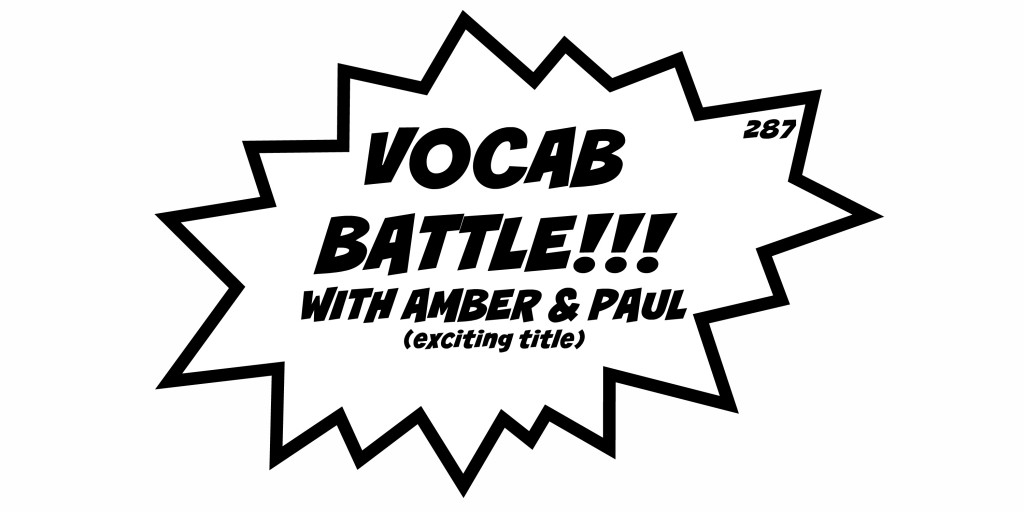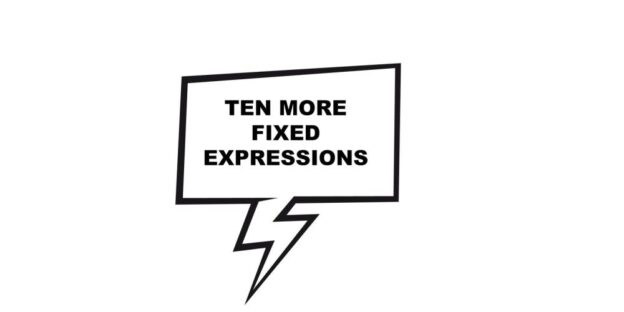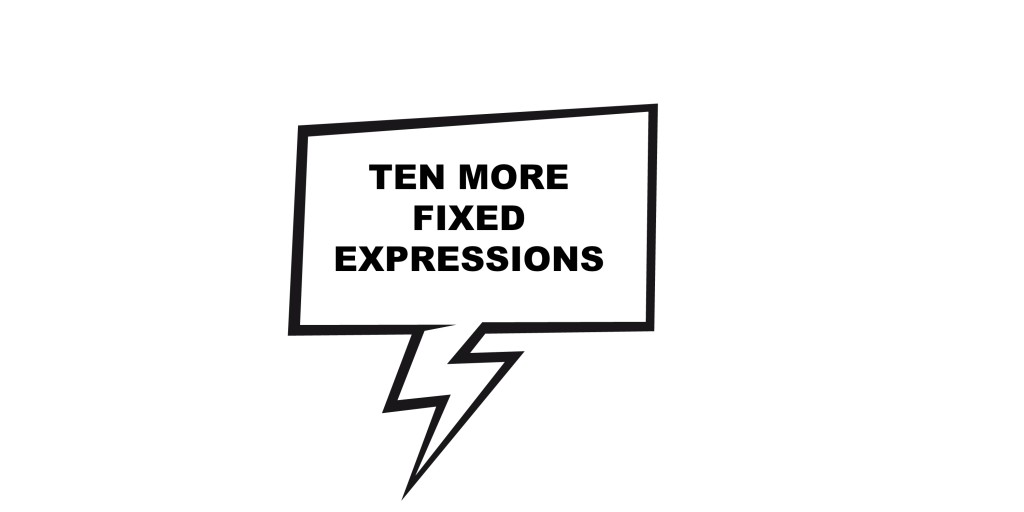Hello! Welcome back to LEP. This should be episode 288. How are you? I hope you’re doing alright. I’m fine thanks. I got back from my honeymoon in California just a couple of days ago. I’m dealing with jet lag. It’s grey and windy here (can you hear the wind noise in the background?) and my sun tan is fading, but it’s good to be back.
![]() [DOWNLOAD]
[DOWNLOAD]
Thanks for lots of recent comments on the last few episodes of this podcast. Thank you sooooo much for all the lovely things so many of you wrote in response to the wedding episode of the podcast that I did recently. It’s really touching to read your comments. My wife also found them very sweet and nice.
This episode is about my recent honeymoon trip to California and I have so much to tell you about it. But before we start, let me just say a few things in the first few minutes of this episode.
First of all, I’d just like to say don’t forget to join the mailing list so you’ll get an email whenever I post a new episode, or other bits of content such as videos or blog posts. Also, you can subscribe to comments on this website too. When you leave a comment on a page, you can tick a box that says “Subscribe to comments”. Then whenever anyone else leaves a comment, including responses to your comments, you’ll get an email notification. It’s a good way to keep up with what other LEPsters are writing on teacherluke.co.uk
Secondly, I would like to say a big hello to YOU – yes, YOU – the one who is listening to this episode, and to say thank you for tuning in, using whatever means – either on the website, on iTunes, on your phone, your iPad, your android device, in your car, on your mp3 player, on your internet radio or just hearing it by chance because someone else is playing it to you, like your English teacher or something. If you’re with other people while listening to this, why not just turn to them and say a friendly, “Hi, how are you? Are you alright?”, just as a gesture of goodwill. There, that feels nice doesn’t it? If you’re a regular listener to LEP, then hi – welcome back. If you’re a long term listener then “hello old friend”. If you’re new to the podcast, then welcome to LEP. I’d just like to say that I strongly recommend that you keep listening to this podcast on a long-term basis, because let’s face it – learning a language is a long-term process, and I record this podcast with that thought in mind. Just listen regularly over a fairly long period and you will see improvements in your English – and that’s just from listening. There are other ways of speeding up the learning process by using my podcast and website as a resource (listen to episode 174 for more information on this) but at the very least, just enjoying listening to this podcast regularly is definitely a great way of keeping your English fresh. People often underestimate the importance of doing lots and lots of listening. It can make a big difference to many other areas of your English, including speaking, pronunciation, vocabulary and grammar. It’s particularly useful if you enjoy what you listen to, and you basically understand most of it, and that you feel that the person you are listening to is speaking to you personally. That’s what I aim to give you in these podcasts. The perfect listening resource to help you improve your English. So, I’d like to say thanks for listening, but I’d also like to say “well done” for listening too, in order to remind you of the benefits that you get from listening to this. Well done, you’re doing the right thing and your English will benefit from it as a result. It’s quite simple really. It’s not rocket science. For more information on this kind of thing, just listen to my other episodes, and have a look at my website which is teacherluke.co.uk. You’ll find loads more information and useful content there.
Introduction
Now, as I mentioned before, this episode is all about my recent trip to California in the USA for my honeymoon! As you probably know, I recently got married and my wife and I decided to go to California, and now I’m back, and my tan is fading, but the memories are still fresh in my mind, and I’d like to share them with you. So, let’s go to the USA in this episode and go on a road trip around California!
Notes & Transcriptions
You will find some notes and some transcriptions on the page for this episode. In fact, if you’re reading them now then you’re reading them now. There they are right in front of your eyes! Just a reminder if you want to find this episode on teacherluke.co.uk – just look in the ALL EPISODES archive for episode 288, or just type in the search bar on the right of the screen the number “288” or the word “California” and you’ll find it easily.
The following words and sentences that you can read on this page are not a full transcription. They’re just notes. Some parts are transcribed, but mostly these are just basic notes, which means that they are not always full sentences. They’re just words and phrases written to help me remember details of the trip.
I wrote these notes on my iPhone during spare moments on holiday, and also when I got back, and I used them to help me record the episode you’re listening to now. I hope you’re listening, and not just reading – remember, this is a podcast and not a blog. It is designed primarily to be listened to.
Here’s what you’re going to get in this episode (or series of episodes)
This is a sort of diary or report of what happened on my honeymoon in California, but it’s not just a description of a honeymoon. It’s more than that, because not only am I going to tell you a few stories about what happened and what we did, but I’ll also explain a bit of cultural and historical information, as well as give you some practical tips, including ways of communicating effectively in various situations.
I’m going to tell you what it’s really like to be in California. It’s a description of the culture, geography, people, history, sights, sounds, smells and more. I’m going to tell you what it’s really like to deal with customer service there, what’s it’s really like to drive in the USA, what it’s like to deal with problems, what some of the linguistic differences are, what the climate is really like, what the food is really like, some of the history and cultural highlights, how to get along with people in the USA, how to develop the right relationship with waiters, hotel staff and other key people. It is a description of my honeymoon, but I also want it to be a lot more than that. I want to take you with me on my holiday, and teach you some things along the way, and it’s all in English of course so not only are you going to join me on a geographical and cultural journey, but also you’re going to plug yourself into a source of natural English spoken from me to you, right here, right now. You can pause it any time you like, you can rewind and listen again, you can slow it down, you can speed it up, you can fall asleep and listen again later, you can transcribe it, you can repeat after me or you can just relax and enjoy listening. So, brew a cup of tea or coffee, get comfortable, get uncomfortable and then get comfortable again, smoke a big cigar, pretend your working on a big excel spreadsheet at work – do whatever you have to do to enjoy the episode. I hope you like it and find it useful.
As usual, I’m not sure how long this episode will be, but I’m pretty sure it will be another mini-series of episodes as I have quite a lot to say about this trip.
You can visit the page for this episode in order to find some of this episode transcribed, some of the notes I wrote in my phone while I was there and other things like links and photographs of the trip.
Now let’s get started with the first part of this story.
Following the tradition, you are going to hear me doing my first recording in a toilet on a plane.
6 August – Recording 1 – In a toilet on a plane again, above the Atlantic Ocean
You’re listening to Luke’s English Podcast
Where am I? I’m in a toilet on a plane again.
This is becoming a tradition – recording podcasts inside toilets on different modes of transport.
We are going to California for our honeymoon.
It’s the land of Hollywood, Baywatch, Coastal Highways, the Golden Gate Bridge, Alcatraz, Yosemite national park, the tallest trees in the world and open top cars etc.
I’m hoping to record short episodes at regular times during the holiday.
I’ll try to teach you something in every location, and I’ll just describe what I’m seeing and what it’s like.
I might even interview a few people that I meet because, you know, they speak English in America too of course – a kind of English.
I’m flying to New York.
What happened?
Flight was overbooked. Flight companies overbook their flights to make sure it’s not a loss of money for them.
We checked in, in person, not online. Why? We were hoping to get upgraded because we’re on our honeymoon.
Everyone told us to mention we’re on our honeymoon, as that would be the key to unlock numerous upgrades, rewards and treasures.
We were hoping to be upgraded to business class or something.
In fact we sort of got downgraded.
Talk about the overbooking process.
Mention the change of route.
It’s not that bad.
All’s well that ends well.
Despite the inconvenience and the delay and the stress we are nevertheless on our way. So all’s well that ends well.
(Let’s hope this ends well and that we do get to our destination ok in one piece)
That’s it – this is Luke Thompson in the toilet signing out.
I originally intended to do recordings while I was there, using my mp3 recorder, including some random interviews with American people, but that didn’t really happen in the end. I mean, it was my honeymoon so the main point was to share a special time with my wife. I wasn’t going around with a microphone the whole time, interviewing people and talking to myself.
However, I did manage to get an interview with one person – and that was perfect and really special, and very appropriate to Luke’s English Podcast, which is primarily for people who are learning English as a foreign language. Who did I manage to speak to? Well, it was the one and only AJ Hoge, who you may well be aware of. He’s the internet’s most famous English teacher. You’ve probably come across him at some point. He has an online teaching programme which he has called Effortless English. He’s made a big success of himself as an independent online English teacher, he’s a native speaker of American English and a resident of California, so he’s the perfect person for me to have spoken to. So, in the end that makes up for the fact that I didn’t speak to any locals on the podcast. I got AJ, so that’s fantastic – it happened in San Francisco so you can expect to hear my conversation with him in that part of the story.
Our California Itinerary
California has so much to offer – climate, different environments, famous sights, shopping, good food, beer, wine, musical history, literary ties, connections to counter culture and it’s the place we’ve seen in so many films and TV shows.
Itinerary: LA – Yosemite – SF – Coastal Highway via Monterey, Carmel, San Luis Obispo, Santa Barbara, Malibu – LA.
We only had two weeks, so there was no way that we could do and see everything. In fact, I think you shouldn’t try to do too much on holiday. I’ve said it before: holidays are like pizzas. Don’t put too many toppings on a pizza. Don’t try to do too many things on a holiday. OK, maybe holidays aren’t that similar to pizzas, but you get the idea.
I’m lucky enough to be able to travel
I generally get the chance to travel somewhere on holiday about once a year. This trip was a bit special because it was my honeymoon and we planned to go on a slightly more expensive trip. Anyway, I’m still lucky to have the opportunity to go to different places, quite far away. Not everyone has that luxury. You might not have that luxury. Admittedly, you might have that luxury – I’m sure many of you are very well travelled. But I also know that plenty of the people who listen to this free podcast don’t have the chance to go on many foreign adventures. So, I hope you enjoy the experience of listening to my account and that I give you an idea of what it’s really like to drive around California for a couple of weeks. And if you have had the luxury of going there, then perhaps you can compare your experiences to my experience. Did you experience similar things and have the same thoughts and feelings? What are some of the the thoughts in your head as you listen to my account on this podcast?
As ever, please leave your comments on the page or pages for this episode series. That’s not just for my reading pleasure, but also so you can share thoughts and ideas with your fellow LEPsters.
California Diary Continued – 6 August/7 August
In the taxi we heard “Hotel California” on the radio, and even though it’s a bit of a cliché, it was a perfect soundtrack to the trip. From the taxi we saw silhouettes of palm trees swaying in the breeze, the shapes of the Hollywood hills in the distance, Spanish style villas, lines of headlights of cars on long highways, the warm temperature outside and the spacious streets and empty sidewalks. Wow, we’re in movieland – LA, is it real or just a jet-lagged dream? This is how it felt at the beginning. We felt a million miles from home, and in a strangely familiar environment – one that we’d seen before in a hundred movies. It was like entering a recurring dream.
LA is a big place, but so is the USA as a whole.
We flew over it for hours and hours. It made me think of the people, years ago, who made that journey on foot or horseback. It took them years and years. They travelled in groups, families etc. People died and were born on the journey. Now we see it as an annoying inconvenience that takes 5-6 hours out of our holiday.
LA, Hollywood
Arrived and went for some dinner.
Service – very personalised. “Hi my name’s Derek, I’ll be looking after you this evening. Can I get you something to drink before we start?” Mammoth sized cups of water and ice arrived. I ordered one beer, I got two because of some kind of special offer I wasn’t even aware of. There’s always some kind of deal, discount or offer available. Already we had way more than we needed.
A Note on Customer Service
Generally, in my experience customer service in the USA is good, despite a couple of negative experiences I had there. There’s a bit more ‘back and forth’ than in the UK (I mean, standard things that you say in general interactions with waiters or staff), and it’s a bit like a little game you have to get used to.
For example:
Hi guys, good morning, how are you today?
Fine thanks, and you?
I’m good thanks for asking. If you need anything at all, my name’s Stacey.
What if we don’t need anything, then what’s your name?
I’m sorry?
You said, if we need anything, you name’s Stacey. What if we don’t need anything, is your name still Stacey? It’s… I’m sorry it’s just a joke.
Oh, I see! You’re joking! Hahahaha!
Sorry, I’m English.
No problem! I love your humour, so dry, right?
Yeah.
Well, just enjoy you guys. Let me know if you need anything.
Thanks for your help Stacey.
Have a nice day now.
You too.
I will, thanks for asking!
Staff tend to be friendly, attentive and professional, probably because quite a large part of their wages comes from tips, so they have to make the right impression. Sometimes though, as a foreigner, it seems a little tricky to get through to the staff if you have particular requests, or perhaps because of the cultural/language barrier. I think this applies to the UK too. Because you’re not local, you don’t know the normal ways of doing things, so you need to make a slightly bigger effort to help bridge the cultural gap. You might think – but this is exclusively the job of the waiter, he/she should make all the effort.
Be realistic, the waiter is a person and they’re not always an expert in cross cultural relations either. If you want to achieve something, and get what you want, you just need to make a bit of extra effort yourself. This means greasing the wheels with some niceness, charm, a smile and a willingness to make things work. So, what’s my advice for getting good customer service when you’re in a foreign country? Just that – try to be clear, positive, friendly and remember that the waiter or whoever it is that’s giving you a service is just a person doing a job. It’s easy to let things break down because of slight cultural differences. It’s important to make an effort to help the person to help you. I say that because I’ve seen people in the UK who got offended by what they perceived was bad service, but was in fact just a slight breakdown in communication. Give your communication a chance and be patient, friendly and helpful, and don’t expect the staff member to understand everything you say the first time around.
L.A. Continued… 7 August
Space.
Coffee & breakfast
Car
Weather
Location
Phrases “you got it” “you’re all set” “I’m good”.
Palm Trees, hotel California, film noir, Raymond chandler, Charles Bukowski, a million movies. The whole place is like a movie set.
This is a movie town – everything is fake and it’s all about veneer. As well as being sunny all the time, there is a mysterious and slightly sinister feeling to the place too, which is perfectly captured by the classic detective stories of Raymond Chandler and other writers, and the movie versions of those stories, collectively part of the film noir movement. I’ll talk more about this mysterious atmosphere in a bit, but first…
Recommended Audiobook Download – The Big Sleep by Raymond Chandler
Let’s take a break from the UK’s favourite books for this series, and look at a few recommendations for California-related audiobooks you could download free by going to www.audibletrial.com/teacherluke
Recommendation #1 – The Big Sleep by Raymond Chandler
This is perhaps THE classic American detective story. It’s set in LA and it is absolutely full of dark and mysterious atmosphere, as well as understated cool humour and sizzling tension. It follows private detective Philip Marlowe as he tries to solve a complex case, while dealing with several dangerous and seductive female characters and some violent murderers. It perfectly captures the atmosphere of a film noir movie set in LA, and it’s really well read by Ray Porter. This is the blueprint for so many other detective stories featuring tough and cool, yet ultimately vulnerable heroes. Imagine films starring Humphrey Bogart for example. It’s glamorous, brutal and extremely well written stuff. www.audibletrial.com/teacherluke The Big Sleep by Raymond Chandler. It’s got an average rating of 4.3 out of 5.
California Diary – LA, Continued…
Nothing is real here. There’s a strange feeling that you’re living in some kind of dream, and I don’t think that is entirely the result of breathing in the marijuana vapours which are floating around in the street in so many places.
It’s hard to date the buildings. They could be old, or they could just be built in an old style. LA doesn’t have the same depth of history as in Europe. There’s evidence of a colonial past, but also so many buildings are new but designed to look like they come from another period, like Spanish villas for example.
It’s all like a movie set, and if you took away the facades of the buildings, it’s just a desert underneath. So, the buildings are a kind of facade. Everything is a bit fake, like in a movie. It’s hard to know what is real. The people also seem a bit distant. They’re sweet, and hippyish, if a bit shallow in some circles. It feels like everyone is high, in fact they probably are, because smoking marijuana is more and more popular.
There’s no evidence of smoke when you walk around, but I’m sure people are ‘vaping’ all over the place. I can smell it. In the corridors of our hotel, in the street outside bars.
California’s Marijuana Laws – An Interesting Legal Conflict
California has an interesting position on marijuana use, and this reveals an interesting conflict between state and federal law in the USA.
Is pot legal in California?
What about smoking tobacco?
Do people smoke in the street?
What is ‘vaping’?
Where do people buy weed in California?
Did you see it or smell it there?
More in part 2 soon…
















 1. Magpies
1. Magpies